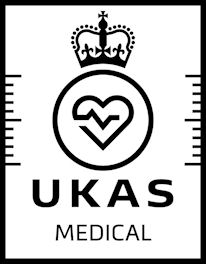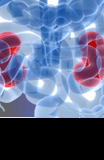
9642
Our scope of accreditation can be found here - UKAS (pdf)
Please note that, in order to ensure that Neuropathology continues to offer the most up to date diagnostic repertoire, there will be tests that are incorporated by the laboratory in between accreditation inspections and, therefore, will be outside our scope of accreditation.
We would like to assure our users that we apply the same vigorous quality control procedures to all our tests and aim to move all tests into the UKAS scope as soon as possible.
Tests outside UKAS Scope of Accreditation
- Alkaline phosphatase staining for muscle histochemistry
- MxA immunohistochemistry
- KLRG1 immunohistochemistry
- Cryostat - Epredia NX50
Skin biopsy service
This is an emerging service and all tests are currently outside the UKAS scope of accreditation. We will be working to bring it into our scope as soon as possible.
Research-use-only antibodies and expired antibodies
The laboratory acknowledges that some of the key antibodies used in diagnostic neuropathology practice in the UK and around the world, and included in the 2021 Fifth Edition of the WHO Classification of Tumours of the Central Nervous System and other seminal texts, are currently marketed for research-use only (e.g. the IDH1 R132H antibody). They are nonetheless used widely, as they are ESSENTIAL (e.g. IDH1 R132H antibody) or highly desirable for routine diagnostic practice.
The laboratory confirms that the antibodies used (whether marketed as research-only or for clinical use) label the expected cell types and structures and that they continue to perform in a stable and reliable manner over time.
We ensure this for all our antibodies by testing with known control material, comparing staining with other neuropathology laboratories and participating in external quality assurance schemes. New research-use only antibodies are extensively tested, with known positive and negative clinical samples in line with our standard operating procedures (SOPs).
Results are reviewed regularly and following each test by senior biomedical scientists, neuropathology / histopathology registrars if available and the consultant neuropathologist in charge of a case or on the duty rota.
Results are never interpreted in isolation; they are ultimately correlated by the neuropathologist team with the overall clinical context, morphology, other immunohistochemistry, molecular testing if available and any other relevant findings (close clinicopathological correlation).
For mutation specific antibodies or surrogate immunohistochemistry for molecular testing, results can be confirmed with appropriate molecular or cytogenetic tests, depending on the exact context as determined by the neuropathologist in collaboration with the clinical teams (e.g. BRAF V600E immunohistochemistry typically requires confirmation by sequencing if used for trial entry or determining whether a patient should receive BRAF inhibitor therapies).
Therefore, the 'risk' of using 'research-only' antibodies is clearly mitigated and the benefits for diagnostic practice clearly outweigh any risks.
The following antibodies are marked as research-use-only:
- AQP4 - expired. Only used in very limited circumstances and as part of wider diagnostic process.
- Alpha Dystroglycan
- CAV-3
- CD56
- Laminin B1
- Laminin B2
- HLA Class I – MHC I
- MHCII
- MHC Embryonic
- MHC Fast
- MHC Slow
- MHC Fetal
- Myotilin
- NOS1
- Alpha Synuclein
- AT8
- ATRX
- Beta-App
- ECA39 (BCAT-1)
- BAF47
- FSH Beta
- GAB1
- Trimethyl Histone H3 – Lys27
- Histone H3K27M
- IDH1 R132H
- MAP-2
- NeuN
- OLIG-2
- P62
- PIT1
- Prolactin
- Human Protein Gene Protein 9.5
- Myelin Proteolipid Protein – PLP
- SF-1
- TPIT
- TDP-43
- YAP1




























































